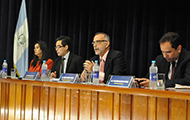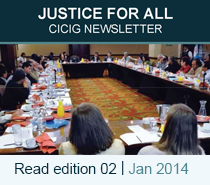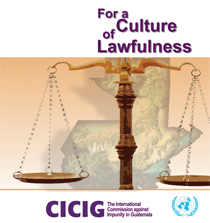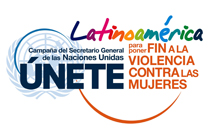The mandate of CICIG (Article 2(1)(c) of the Agreement to Establish CICIG) provides for recommendations to be made to the State of Guatemala regarding public policies to be adopted—including the necessary judicial and institutional reforms—to eradicate and prevent the re-emergence of clandestine security structures and illegal security forces.
Pursuant to this part of its mandate, CICIG has created two sets of comprehensive proposals for legislative reforms to help the State eradicate and prevent the re-emergence of clandestine security structures and illegal security groups.
In addition, CICIG supports various legal and institutional reform processes that—even though they did not originate in CICIG—constitute positive steps in enabling Guatemala to best grapple with crime phenomena, especially the activities of illegal groups and clandestine structures.
As part of these efforts, to date, CICIG has presented:*
- First set of legislative reform proposals
- Second set of legislative reform proposals
* It is important to emphasize that the proposals of CICIG may have been subject to changes following dialogue with different sectors and discussions that are inherent to any legislative reform. In this website the original proposals can be found.
Furthermore, CICIG has backed other initiatives that are related to its mandate:
First comprehensive set of legislative reform proposals
Executive Summary of the First Set of Reforms
CICIG presented its first set of legislative reform proposals before the President of the Congress in October 2008. This first set includes reform recommendations for the following areas:
- Proposal to ammend the Law on Lifting Immunity
- Proposal to amend the Amparo, Habeas Corpus and Constitutionality Law
- Proposal to amend the Regulation of Motions in Criminal Proceedings
- Proposal to amend the Use of Audiovisual Media for Witness and Expert Witness Statements in Criminal Proceedings
- Proposal to amend the Changing of Identity and Relocating of Witnesses and People who Cooperate in Criminal Proceedings
- Proposal to amend Effective Collaboration and Regulation of Benefits and Protection Mechanisms in the Anti-organized Crime Law
- Proposal to amend the Arms and Ammunition Law
Following more than ten years of dialogue and discussions, Congress amended the Arms and Ammunition Law on March 31, 2009. This amendment incorporated many of the recommendations made by CICIG that figure in its first set of proposals.
On April 14, 2009, Congress passed the Law to Enhance Criminal Prosecution and, at a later stage, Decree 23-2009 of the Law against Organized Crime. These laws include numerous recommendations contained in the first set of proposals of CICIG. Among other elements, the law currently provides legal benefits to members of organized crime groups that facilitate information that is important for investigating crimes, punishing those responsible and dismantling such organizations. The law also provides for mechanisms that permit witnesses to give testimony through a videoconference so as to protect his or her safety.
Second comprehensive set of legislative reform proposals
Executive Summary of the Second Set of Reforms
The second set of proposals of CICIG includes recommendations for reforms in the following areas:
- Trafficking of persons, including illegal adoptions
- Illegal trafficking of immigrants
- Set of penal anti-corruption measures (including the criminalization of unjust enrichment and other crimes), and the inclusion of disqualification as an accessory penalty
- Disciplinary regimes of the Public Prosecutor's Office (MP), the Judiciary (OJ) and the National Civil Police (PNC)
- International Judicial Cooperation for criminal matters
Furthermore, CICIG created a legal reform proposal related to jurisdiction so that (with the aim of ensuring the independence of the courts and the safety of the parties to the proceedings) certain courts try to rule on cases in which the safety of (among others) judges, prosecutors, defendants, witnesses is at greatest risk. The Proposal 4113, presented by Members of Congress José Roberto Alejos and Oliverio García Rodas, was created as a result of the aforementioned proposal. On August 4, 2009, Congress passed the Law on Criminal Jurisdiction in High-risk Matters and, at a later stage, its amendments by means of Decree 35-2009 of the Congress of the Republic.
Furthermore, on November 23, 2010, the Congress of the Republic passed Decree 52-2010, which provided for amendments to be made to the Code of Criminal Procedure. The aforementioned decree, with some variants, includes most of the recommendations suggested by CICIG regarding the regulation of motions in criminal proceedings.
Furthermore, on November 23, 2010, the Congress of the Republic passed Decree 52-2010, which provides for the Law to regulate private security services. CICIG participated in the process that led to the passing of the aforementioned law.
Finally, on December 7, 2010, the Congress of the Republic passed Decree 55-2010—Asset Forfeiture Law—which entered into force on June 29, 2011.
Current state of reforms promoted by CICIG regarding legislative matters
















